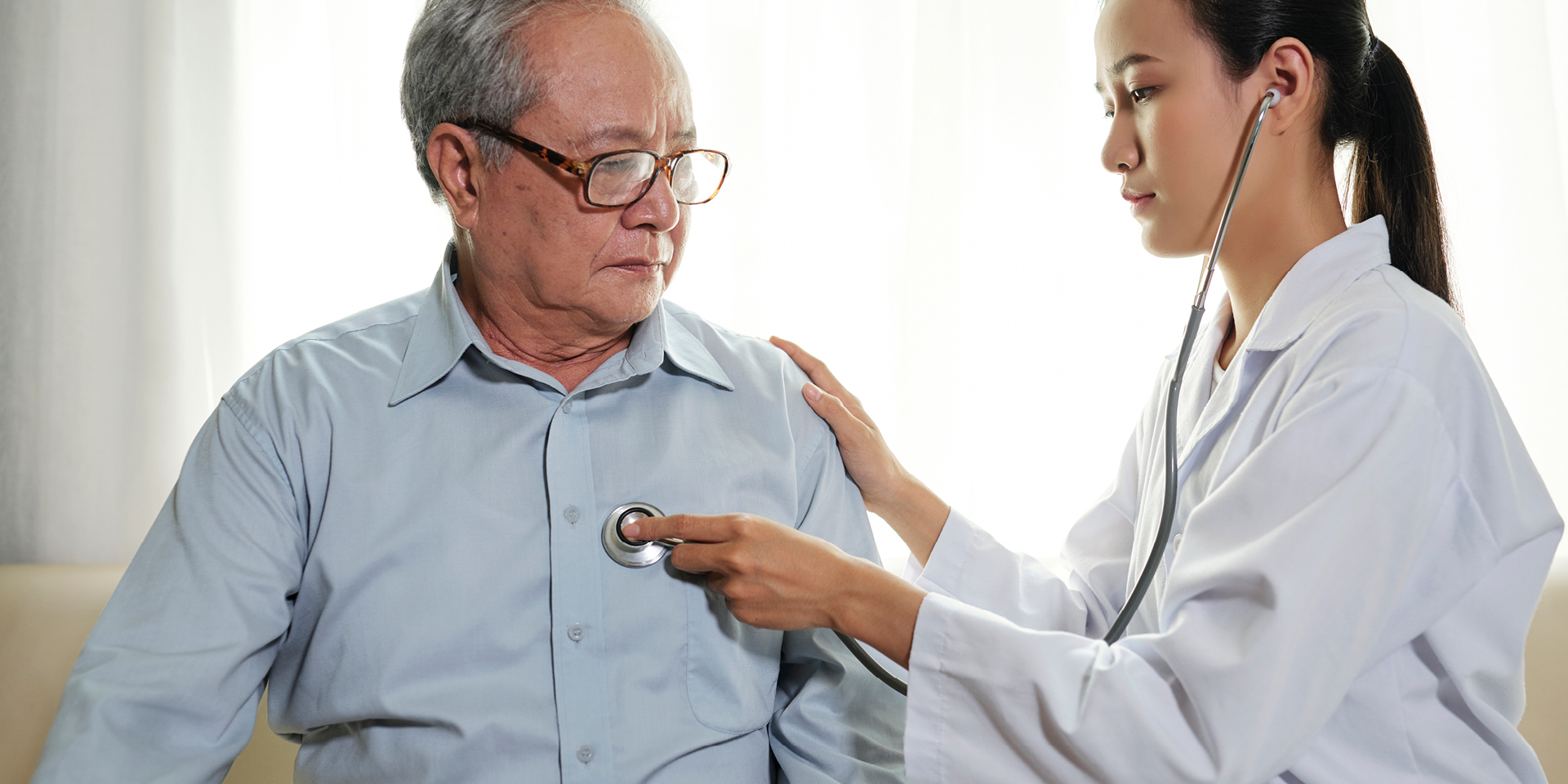Cancer Treatments May Affect the Heart
The National Cancer Institute acknowledges that toxicity, or damage to the heart and the cardiovascular system, can result from certain cancer treatments. In the United States, there are an estimated 17 million cancer survivors and climbing. Of those survivors, heart disease is the second cause of death after second malignancy.
The Evolution of Cardio-Oncology
Cardio-oncology is an emerging, multidisciplinary specialty identifying cancer patients at higher risk for developing cardiotoxicity and providing them with access to early cardiovascular assessment, intervention and treatment. The American College of Cardiology formed a cardio-oncology council in 2014 and the American Heart Association started a cardio-oncology committee in 2019. However, Doylestown Health cardiologist Renee Sangrigoli, MD, estimates that since cardio-oncology is still such an evolving field, national or international guidelines may not be established for another three years.
Doylestown Health Forges Ahead
At the beginning of 2020, Doylestown Health colleagues came together over the immediate need for a cardio-oncology program. As Dr. Sangrigoli put it, "There are so many new oncology medications coming out that are wonderful for patients but that do have the potential for cardiotoxicity, especially when coupled with radiation in some settings." Health professionals from Doylestown Health Cardiology, Breast Surgery, Pharmacy, Nursing and Urology, plus counterparts from Alliance Cancer Specialists and Penn Medicine Radiation Oncology, have been meeting monthly—albeit virtually, due to the pandemic—to review the latest studies, recount patient experiences and write their own standards for cardio-oncology care. The group has written guidelines to help identify which patients are at high risk for cardiac complications based on their cardiovascular risk factors, the particular chemotherapy they are receiving or symptoms they manifest during treatment.
The resulting Doylestown Health Cardio-Oncology Program is one of only a handful in the region and the sole provider in the local area. The program strives to improve the cardiovascular health of patients with cancer and cancer survivors through education, training, research development and interdisciplinary collaboration. John Mitchell, Doylestown Health Vice President, Cardiovascular and Surgical Services, explains, "This program really serves as a conduit of communication between departments, providing a multidisciplinary approach to treating a patient."
The Patient Journey
Since its recent inception, Doylestown Health's Cardio-Oncology Program has seen over 50 patients. A dedicated cardio-oncology nurse navigator, Kassie Richman, receives referrals to the program from oncologists, breast surgeons and other cancer nurse navigators, based on the program guidelines.
Patients fall into three categories:
- Those who have
cardiovascular disease or those who do not have cardiovascular disease but are at cardiovascular risk either because they are
receiving a potentially cardiotoxic chemotherapy or radiation to the head, neck or chest, or they have risk factors like
family history, hypertension, diabetes or high cholesterol
- People who are
undergoing treatment and develop cardiac or vascular symptoms, like shortness of breath, chest pain or changes in their EKGs
- Survivors who had chemotherapy 10 or 20 years ago, when the long-term side effects and toxicities of chemotherapy and radiation therapy were not widely understood, and have accelerated cardiovascular-related issues or may be at risk
Kassie serves as the link for these patients between the oncology and the cardiology offices. She answers questions, coordinates patient records transfer, reviews tests and helps patients know what to expect from a cardiology appointment. Patients have expressed their appreciation for having a nurse navigator as a centralized, responsive point of contact.
Looking Ahead
Survivorship
Doylestown Health follows cancer patients when they've moved from active treatment to survivorship. The cardio-oncology team is
working on providing cardiovascular care information to these patients and developing guidelines on how frequently they should
be evaluated over their lifetime.
Outreach
Doylestown Health plans to lend expertise to cancer centers and will continue educational outreach to community physicians.
Research
Cardiology and oncology at Doylestown Health will extend their collaboration to joint research projects.
Doylestown Health Cancer Institute Director Rachel Saks believes that the Cardio-Oncology Program is very much in keeping with the health systems philosophy of ensuring that all of a patients needs are met. "I am extraordinarily proud to be a part of this program and to provide this service which looks at our patients from a cardiac perspective," she says.
Dr. Sangrigoli adds that: "A person whose life is turned upside down with a cancer diagnosis and is worrying about every little thing will say to me that our program has made them feel safe at one of the most challenging stages of their lives."
About Penn Medicine Doylestown Health Cancer Institute
The PMDH Cancer Institute offers patients the quality care they expect from a leader in cancer diagnosis and treatment - close to home. Accredited by the American College of Surgeons Commission on Cancer our board-certified physicians and oncology-certified practitioners provide comprehensive, coordinated care and services for the full range of cancer diagnoses including breast, lung, urologic, gastrointestinal and other cancers.
About Doylestown Health's Heart & Vascular Services
Expert cardiologists and cardiac surgeons assist patients and physicians with managing risk factors for heart disease, offer advanced treatment options and provide outstanding emergency cardiac care. Doylestown Hospital’s accredited Chest Pain Center is fully prepared to treat cardiac emergencies around the clock, focusing on rapid diagnosis and effective treatment. The multidisciplinary team at the Woodall Center for Heart and Vascular Care is dedicated to providing the highest level of quality care and patient safety.
